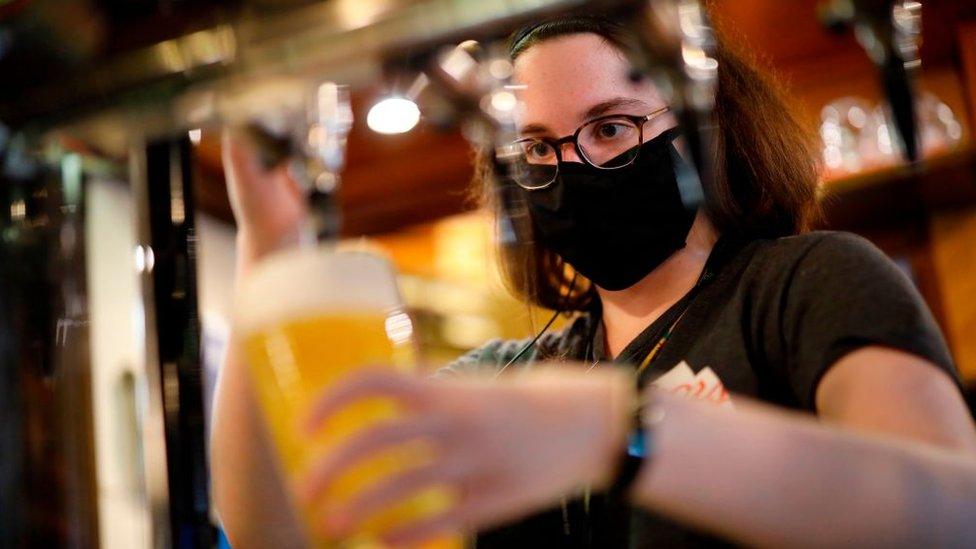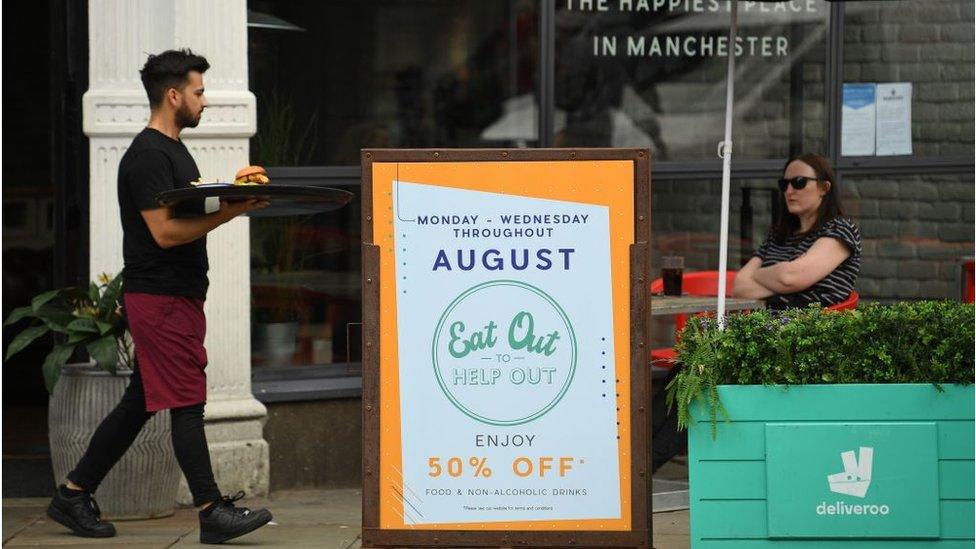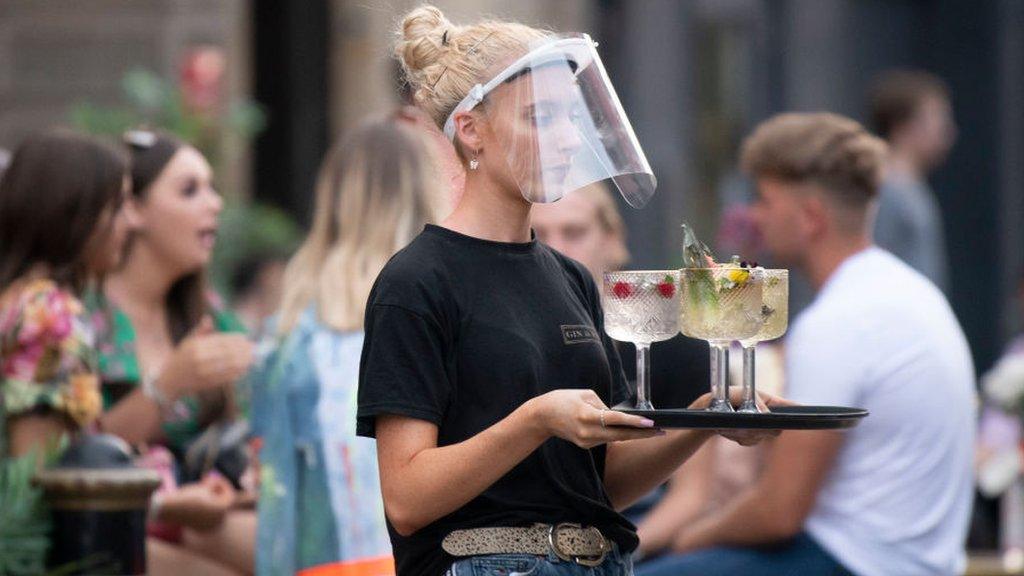Rishi Sunak: VAT cut to be extended for hospitality sector
- Published
- comments

The chancellor has announced the extension of a VAT cut for the hospitality and tourism sectors - some of the worst-hit by the pandemic.
Rishi Sunak said that the temporary reduction of VAT rates from 20% to 5% would remain in place until 31 March 2021, rather than 13 January.
The measure would "help protect 2.4 million jobs through the winter", he said.
But industry figures said that they were "still not out of the woods".
Restaurants and pubs in particular were affected by lockdown measures, and thousands of jobs in the sector have already been lost.
The temporary VAT cut first came into force in July and was designed to help hotels, restaurants, cafes and pubs to shore up their finances.
Some firms, however, such as KFC, Nando's and Pret, decided to pass on the savings directly to customers by cutting prices in their outlets.
The chancellor said on Thursday that the extension to the VAT cut would help "support more than 150,000 businesses" through the winter period.
The cut applies to food and non-alcoholic drinks, accommodation and admission to tourist attractions across the UK, according to the Treasury's Winter Economy Plan., external
In a press conference on Thursday, the chancellor said that the extension would cost the Treasury £800m - on top of the previous estimate of £2.5bn.

What is VAT?
Value Added Tax, or VAT, is the tax you have to pay when you buy goods or services.
The standard rate of VAT in the UK is 20%, with about half the items households spend money on subject to this rate.
There is a reduced rate of 5% which applies to some things such as children's car seats and home energy.
When you see a price for something in a shop, any VAT will already have been added.
There are also various items for which you do not have to pay any VAT, such as most supermarket food, children's clothing, newspapers and magazines.

'Some reason to be positive'
The chief executive of trade association UK Hospitality, Kate Nicholls, said that the cut provided some good news for the sector after it was announced that pubs and restaurants in England must now close at 22:00 BST.
"The announcement of further restrictions was a significant hammer blow that will inevitably depress trading," she said.
"It was crucial that the chancellor delivered support today that specifically targeted the hospitality sector which has been hit harder than any.
"The chancellor has given us some reason to be positive again but we urge him to engage with the trade on specific measures to keep people in work.
"While some of these measures announced today will give businesses a future to shoot for and hope that they can begin to rebuild, we are still not out of the woods."
In an attempt to boost consumer demand, Mr Sunak introduced the "Eat Out to Help Out" scheme in August as restaurants and cafes gradually reopened over the summer.

Many restaurants took part in the chancellor's "Eat Out to Help Out" scheme in August
Under the scheme, diners got a state-backed 50% discount on meals and soft drinks up to £10 each on Mondays, Tuesdays and Wednesdays.
Earlier in September, the Treasury said that more than 100 million meals had been claimed under the scheme, which saw restaurant bookings surge.
But Will Hawkley, UK head of leisure at KPMG, labelled the scheme "a distant memory", with the government's job retention scheme winding down and the number of coronavirus cases rising in the UK.
"The leisure and tourism industry has understandably been feeling uneasy, if not left questioning its survival prospects," he said.
"While the chancellor may have demonstrated that the sector's woes haven't been overlooked, most businesses are likely to conclude that the extension of the VAT cut and the latest job support measures don't go far enough.
"Sadly not all operators will be able to survive and further job losses will be inevitable without further government support."
Many firms have been forced to make job cuts due to the impact the pandemic has had on trade overall.
On Tuesday, Whitbread, which owns Premier Inn and Beefeater, warned that 6,000 staff could lose their jobs after guest numbers had slumped.
Last month, Pizza Express warned 1,100 people could lose their jobs under its planned restructuring which will see the closure of 73 outlets..
In June, The Restaurant Group - which owns Frankie and Benny's - said it was cutting up to 3,000 jobs.
- Published18 September 2020

- Published22 September 2020
